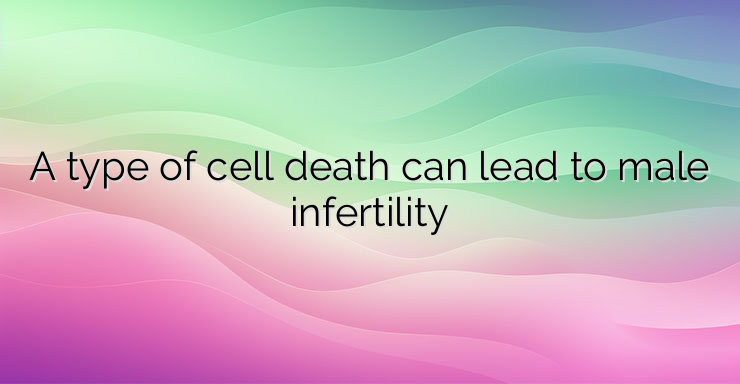A type of cell death has a strong association with male infertility. Ferroptosis can significantly damage the male reproductive system and lead to sperm problems. Ferroptosis is a type of cell death distinct from apoptosis and necrosis. It is characterized by the accumulation of iron as a result of lipid peroxidation in the cell. Ferroptosis is characteristic of many complications such as neurodegeneration, ulcerative colitis or carcinogenesis in the body. Ischemic complications of the kidney and liver are also associated with ferroptosis. This type of cell death can also occur as a result of an imbalance of iron levels in the body. They can lead to increased intracellular iron levels and thus to iron overload in the cells. Although cells have internal mechanisms to prevent ferroptosis—mitochondria being one such mechanism—multiple factors can affect iron levels in the cell and cause this cell death. In addition to the kidneys, liver and brain, ferroptosis can also affect the male reproductive system. It turns out that this type of cell death can cause damage that can significantly affect male fertility and lead to sterility. A number of factors can lead to ferroptosis of cells in the male reproductive system – specifically those in the testicles. Smoking and regular alcohol consumption can cause ferroptosis in the testicles, which significantly affects sperm quality. Nicotine directly affects the blood-testis barrier, which protects sperm from the body’s immune system. In addition to problems with this barrier, nicotine affects a certain factor called NRF2, which is closely related to ferroptosis in the testes. Multiple environmental factors can also increase the risk of ferroptosis in the male reproductive system. Most of the substances that pollute the air, including microplastic particles and toxins such as HT-2, can directly lead to this type of cell death. Ferroptosis is not as well known as other types of cell death (apoptosis, necrosis). But its nature suggests how it can be prevented. Antioxidants, as well as iron chelation treatment, are some of the ways to prevent it. References: Hu, H. (2023, September 28) Emerging roles of ferroptosis in male reproductive diseases. Retrieved 2023, October 9 from https://www.nature.com/articles/s41420-023-01665-x


Leave a Reply